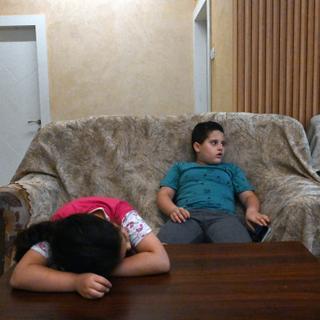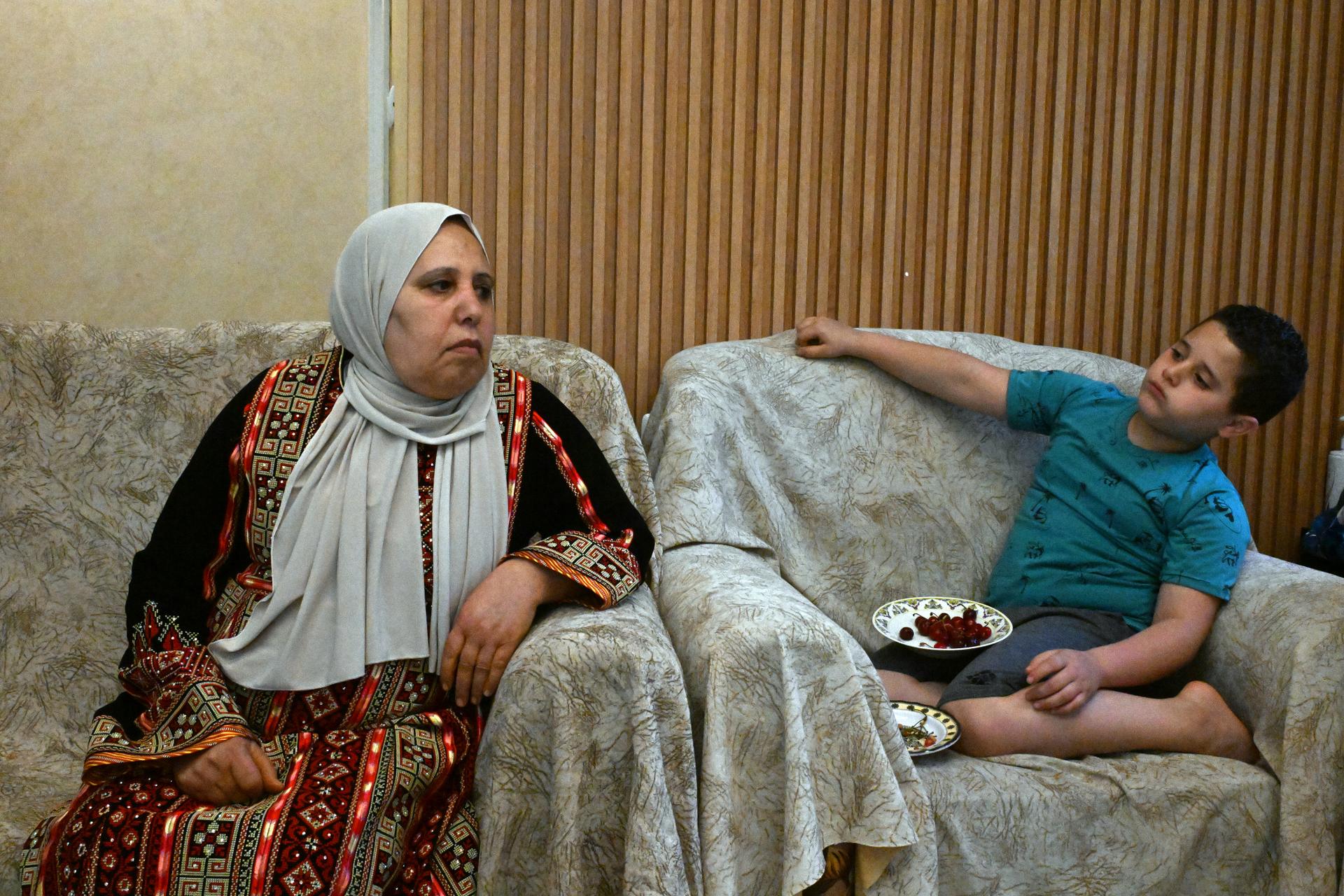


'I sleep fully clothed': Gaza war revives old Palestinian trauma
FeaturePsychologists working in the West Bank are seeing patients in a state of shock. The current war in Gaza is of a magnitude surpassing that of the Nakba, the forced exodus of Palestinians when Israel was created in 1948.
In the small living room of her old house in Jerusalem, Nuha Attieh cleared away the things lying around on the coffee table, sat her four grandchildren upright on the sofa and excused herself to go change. Thursday is the day for family therapy sessions with social workers from the NGO Doctors of the World Switzerland.
The voices of Selma, 8, and her brother Jamal, 7, rose higher. "There were four of them," said one, "No, five! They came in here and here," corrected the other. Some 10 days after Hamas's attack on Israel on October 7, 2023, Israeli law enforcement officers burst into the family living room. Attieh didn't even have time to put on her veil. When she asked the Israelis what they were looking for, they ordered her to be quiet. "One of them had a gun, he wanted to shoot," said Selma, although it wasn't clear whether she wasn’t referring to this incident or a previous raid. Her childlike expression was in stark contrast with the violence of the situations she described.
'Everyone sees me as strong, but I'm not'
Attieh lives at the end of a small street in Sheikh Jarrah, East Jerusalem, the Palestinian part of the city. Since 2009, when Israeli settlers first evicted a family from the neighborhood, the retired nurse, widowed at the age of just 36, has lived in constant fear of losing her home. She makes sure there's always someone inside. On Jewish holidays, "I sleep fully clothed, with my veil, on the sofa," in case there's an intruder, she said.

In May 2021, the Sheikh Jarrah neighborhood was at the heart of a protest movement against advancing settlers, which attracted international media attention. The brutal Israeli police crackdown was one of the triggers for the ensuing 11-day war in Gaza. Attieh's son was arrested two months later by the police and she was unable to find out where he was being held for two months, before he was then released in May 2022. "We're alive, but we don't have a life," she summed up, her eyes reddening. "Sometimes I go out of the room to cry. Everyone sees me as strong, but I'm not."
In recent months, the sight of rows of displaced people's tents in Rafah, in the south of the Gaza Strip, has brought another terror back into Attieh's thoughts. In 1948, when Israel was established, her family was evicted from a village west of Jerusalem, where the Israeli town of Bet Shemesh now stands. A forced exodus, experienced by 700,000 other Palestinians, which is referred to in the national memory as the "catastrophe" – the Nakba, in Arabic. "At the age of 60, I'm a refugee in my own country," observed Attieh. "This is happening again with Gaza today." She wiped her cheek: "It breaks my heart."
You have 60.61% of this article left to read. The rest is for subscribers only.
